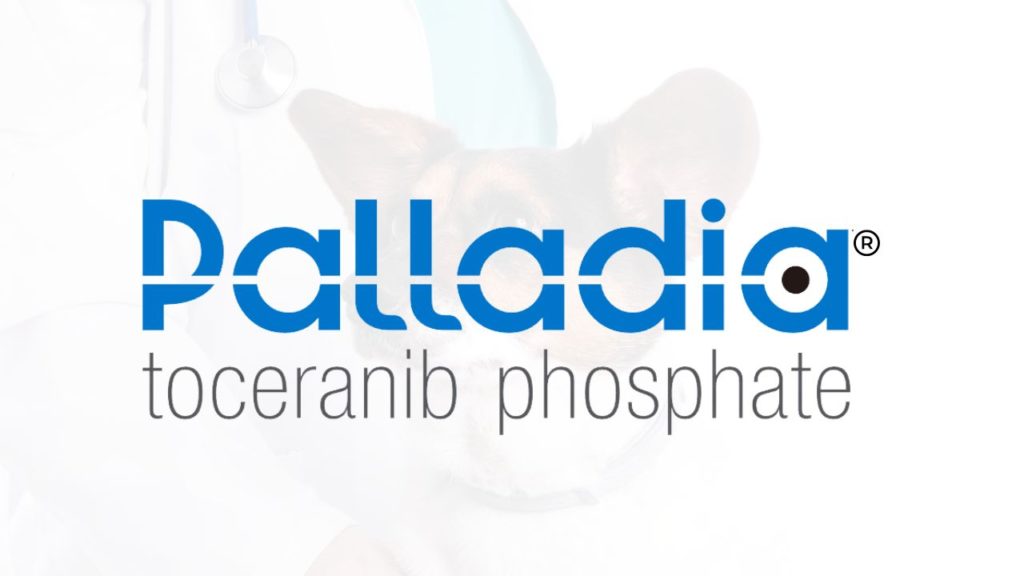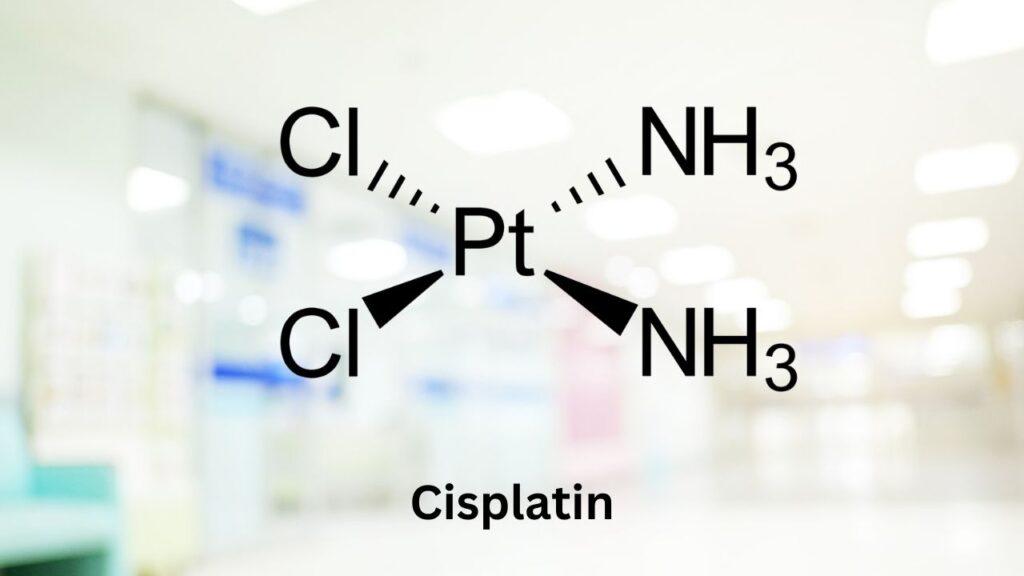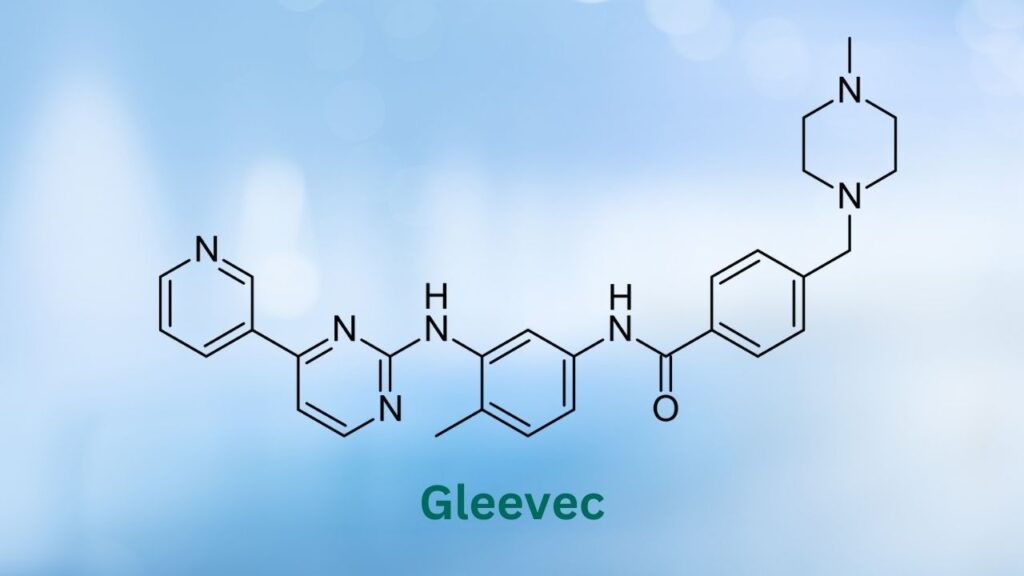Masitinib is a chemotherapeutic approved in the EU for the treatment of Mast Cell Tumors.
Key Takeaways
- Masitinib is used in the EU for treating mast cell tumors, especially those with a specific mutation. Your veterinarian might want to add it to surgery or other chemotherapy treatments.
- Masitinib is a chemotherapy drug that inhibits certain tyrosine-kinase and platelet-derived growth factors. By binding to their receptor sites, it blocks tumor growth.
- Side effects of masitinib include tummy upset, hair loss, lethargy, cough, enlarged lymph nodes, edema, and lipoma.
- More severe side effects include kidney and liver problems, red blood cell problems, and white blood cell problems.
- A box of 30 masitinib 50 mg tablets costs approximately £64.
Masitinib Is a Tyrosine-kinase Inhibitor
The chemotherapeutic drug masitinib inhibits select tyrosine-kinase (TK) and platelet-derived growth factor receptors.1
Binding to these receptors starts a cascade of events in the cancer cell (see below).
Masitinib Is Available in the EU
Masitinib is labeled in the EU for treating non-resectable grade 2 or 3 mast cell tumors, specifically, those confirmed with a mutated c-kit tyrosine kinase receptor.
It is not available in the US, as the FDA believes other suitable alternatives exist, as Veterinary Practice News reports. “For example, the drug Palladia (toceranib phosphate, NADA 141-295), which is FDA-approved for the treatment of mast cell tumors in dogs, may be appropriate in some cases,” the agency stated. “Also, other FDA-approved animal and human drugs may potentially be used legally in an extralabel manner in dogs with mast cell tumors.”15
Brand Names
Masitinib mesylate (Masivet®) in Europe
Masitinib was brought to market as Kinavet in the U.S. during its conditional approval period. Once it did not pass approval by the FDA, it went off the market, and Kinavet is no longer available in the U.S.
How Masitinib Works
Tyrosine kinases are a class of enzymes. They are considered as part of upstream signaling for the growth of cancer cells.
Masitinib works to inhibit specific tyrosine kinase receptors and therefore stop growth signals.
Other mechanisms have been suggested, including inducing apoptosis (programmed cell death) by increasing reactive oxygen species (think the opposite of antioxidants).1,2,16
Common Uses
Masitinib is approved for treating mast cell tumors in Europe but has also been used/investigated with other tumors.
Mast Cell Tumors
Mast cell tumors can sometimes be challenging to categorize and grade, but we do have some numbers to look at.
A 2016 study found a clinical response (tumor regression) in 82% of dogs receiving masitinib.6
- Of those dogs, 38.5 percent were completely responsive.
- The mean survival time for all dogs of 159 days.
- Adverse effects were seen in over half the dogs, however.
- The most common signs were elevations in alanine aminotransferase (a liver enzyme) and vomiting.
In a separate study, dogs receiving and responding to masitinib or toceranib (a similar drug) had a mean overall survival time of 147 days.9
- The drug was administered as either a primary or rescue treatment.
- This study also looked for c-kit gene mutations and found that clinical responsiveness to treatment was more indicative of survival duration than the genetic mutation.
An earlier prospective (forward-looking) study identified that dogs who responded to or had disease-progress-stabilization at six months post-treatment were more likely to survive to 12 and 24 months.
- Six-week survival was not predictive of long-term survival.
- This was true in both wild-type and mutated Tyrosine kinase-tumor patients, although dogs with mutated genes were more likely to respond, like that observed in vitro.7
- Other studies have shown similar results with response to treatment as most predictive for survival.7,17
Using masitinib with surgical intervention appears to be beneficial in at least some cases. Dogs with metastatic disease showed a median survival time three times greater with surgery than dogs receiving chemotherapy alone.13
Chemotherapeutic combinations other than masitinib may be more beneficial dependent on the state of the disease.
Mammary Cancer
An in vitro study evaluated masitinib in canine mammary cells found that suppressed cell proliferation occurred, which means the cancers stopped reproducing as much.18
Further in vitro and in vivo studies need to evaluate masitinib’s effectiveness in mammary cancer.
Lymphoma
A 2014 study in 10 dogs looked at masitinib with epitheliotropic lymphoma.8
- Seven of 10 dogs achieved at least partial remission (median time >/= 60.5 days).
- Overall, side effects were mild to moderate and occurred in 6 dogs.
- Evaluation of specific tumor markers suggested that effectiveness was likely not generated through the TK receptor.
Prostate and Bladder Cancer
Masitinib in vitro inhibited the proliferation of cancer cells likely through inhibition of the proteins tyrosine-protein kinase Lyn (Lyn), and platelet-derived growth factor receptors alpha and beta (PDGFR-α, PDGFR-β). These proteins are expressed in canine prostate cancer derived from both prostate and bladder cells.10
A study published in 20183 found that masitinib combined with indomethacin inhibited cell viability in transitional cell (a type of cell found in bladders) tumors in vitro. Please note that indomethacin is an NSAID not recommended for dogs because it causes severe GI side effects, so your veterinarian will not likely recommend this combination.
Further work on the effects in bladder and prostate cancer patients is warranted.
Oral Fibrosarcoma
In vitro studies on cell lines obtained from canine oral fibrosarcomas showed decreases in cell viability after masitinib alone or with doxorubicin.14
Additional in vitro and in-life studies are needed to assess further if masitinib can successfully treat these tumors.
Melanoma
A study of masitinib used for end-stage malignant melanoma showed only mild effectiveness. The authors concluded that this drug alone may not be appropriate for dogs with this cancer.5
When to Not Use Masitinib
According to the product labeling for Masivet, your dog should not receive masitinib in the following cases:2
- pregnant or nursing puppies
- less than 6 months of age or weighs less than 4 kg
- suffering from inadequate liver or kidney function
- has an anemia or low neutrophil count
- has an allergic reaction to masitinib
The efficacy of Masivet might be reduced in dogs previously treated with chemotherapy and/or radiotherapy. No information relating to potential cross-resistance with other cytostatic products is available.
How to Give Masitinib
This drug can be used at home. The recommended dose is 12.5 mg/kg (with a dose range of 11–14 mg/kg) once daily. The tablets must be administered whole. If the dog rejects a broken tablet after chewing, it should be disposed of.2
What If I Miss a Dose?
Consult your veterinarian if you miss a dose.
Storage and Handling
Keep the bottle tightly closed.
According to the product label information:
“Repeated dermal contact with masitinib may impair female fertility and fetal development. The active substance of Masivet can cause skin sensitization.
Avoid skin contact with feces, urine, and vomit of treated dogs.
Wear protective gloves while disposing of vomit, urine or feces of treated dogs.
If broken tablets, vomit, urine or feces of treated dogs come into contact with the skin, rinse immediately with plenty of water.”2
Safety and Side Effects for Masitinib
There can be an effect on renal (kidney) function, so routine blood work is recommended. Product insert recommendations include monitoring:
- renal function values, including protein in the urine
- red blood cell counts and evaluation for hemolysis
- liver enzyme concentrations
- white blood cell counts
The occurrence of any of these findings can result in treatment interruption and/or dose adjustment.2 Proteinuria often occurs within the first month of treatment.11 Acute kidney injury has been reversed by stopping masitinib and treating the kidney disease.4
Other less severe side effects include GI distress (vomiting, nausea, diarrhea), hair loss, lethargy, cough, enlarged lymph nodes, edema, and lipoma formation.2
Costs Associated with Masitinib
Masitinib is available as 50 mg and 150 mg tablets.2
- A box of 30 masitinib 50 mg tablets costs approximately £64.12
- A box of 30 masitinib 150 mg tablets costs approximately £140.12
- EUROPEAN PUBLIC ASSESSMENT REPORT (EPAR) MASIVET, EPAR summary for the public. 2009. https://www.ema.europa.eu/en/documents/overview/masivet-epar-summary-public_en.pdf. Accessed December 9, 2022.
- Annex I Summary of Product Characteristics. https://www.ema.europa.eu/en/documents/product-information/masivet-epar-product-information_en.pdf. Accessed December 9, 2022.
- Bourn J, Cekanova M. Cyclooxygenase inhibitors potentiate receptor tyrosine kinase therapies in bladder cancer cells in vitro. Drug Design, Development and Therapy. 2018;12:1727-1742. doi:10.2147/dddt.s158518
- Devine L, Polzin D. Presumed masitinib-induced nephrotic syndrome and azotemia in a dog. Canadian Veterinary Journal. 2016;57(7):752-756.
- Giuliano A, Dobson J. Prospective clinical trial of MASITINIB mesylate treatment for advanced stage III and IV canine malignant melanoma. Journal of Small Animal Practice. 2020;61(3):190-194. doi:10.1111/jsap.13111
- Grant J, North S, Lanore D. Clinical response of Masitinib Mesylate in the treatment of canine macroscopic mast cell tumours. Journal of Small Animal Practice. 2016;57(6):283-290. doi:10.1111/jsap.12480
- Hahn KA, Legendre AM, Shaw NG, et al. Evaluation of 12- and 24-month survival rates after treatment with masitinib in dogs with nonresectable mast cell tumors. American Journal of Veterinary Research. 2010;71(11):1354-1361. doi:10.2460/ajvr.71.11.1354
- Holtermann N, Kiupel M, Kessler M, Teske E, Betz D, Hirschberger J. Masitinib monotherapy in canine epitheliotropic lymphoma. Veterinary and Comparative Oncology. September 2015. doi:10.1111/vco.12157
- Horta R, Giuliano A, Lavalle G, et al. Clinical, histological, immunohistochemical and genetic factors associated with measurable response of high‑risk canine mast cell tumours to tyrosine kinase inhibitors. Oncology Letters. 2017;15(1):129-136. doi:10.3892/ol.2017.7323
- Klose K, Packeiser EM, Granados‐Soler JL, Hewicker‐Trautwein M, Murua Escobar H, Nolte I. Evaluation of the therapeutic potential of masitinib and expression of its specific targets c‐kit , pdgfr ‐α, pdgfr ‐β, and Lyn in canine prostate cancer cell lines. Veterinary and Comparative Oncology. 2022;20(3):641-652. doi:10.1111/vco.12817
- Kuijlaars M, Helm J, McBrearty A. Development and progression of proteinuria in dogs treated with masitinib for Neoplasia: 28 cases (2010‐2019). Journal of Small Animal Practice. 2021;62(8):646-654. doi:10.1111/jsap.13305
- Masitinib. Animed. https://www.animeddirect.co.uk/catalogsearch/result/?q=mastivet Accessed March 7, 2023.
- Miller RL, Van Lelyveld S, Warland J, Dobson JM, Foale RD. A retrospective review of treatment and response of high-risk mast cell tumours in dogs. Veterinary and Comparative Oncology. 2014;14(4):361-370. doi:10.1111/vco.12116
- Milovancev M, Helfand SC, Marley K, Goodall CP, Löhr CV, Bracha S. Antiproliferative effects of masitinib and imatinib against canine oral fibrosarcoma in vitro. BMC Veterinary Research. 2016;12. doi:10.1186/s12917-016-0712-x
- Niedziela K. Cancer Drug Kinavet No Longer Approved for Use. Veterinary Practice News. December 2015. https://www.veterinarypracticenews.com/cancer-drug-kinavet-no-longer-approved-for-use/ . Accessed December 9, 2022.
- Semba Y, Yamamoto S, Takahashi S, Shinomiya T, Nagahara Y. C-kit inhibitor masitinib induces reactive oxygen species-dependent apoptosis in c-kit-negative hepg2 cells. European Journal of Pharmacology. 2022;931:175183. doi:10.1016/j.ejphar.2022.175183
- Smrkovski OA, Essick L, Rohrbach BW, Legendre AM. Masitinib Mesylate for metastatic and non-resectable canine cutaneous mast cell tumours. Veterinary and Comparative Oncology. 2013;13(3):314-321. doi:10.1111/vco.12053
- Ustun-Alkan F, Bakırel T, Üstüner O, et al. Effects of tyrosine kinase inhibitor-masitinib mesylate on canine mammary tumour cell lines. Journal of Veterinary Research. 2021;65(3):351-359. doi:10.2478/jvetres-2021-042
Kinavet® and Masivet® is a registered trademark of AB Science
Topics
Did You Find This Helpful? Share It with Your Pack!
Use the buttons to share what you learned on social media, download a PDF, print this out, or email it to your veterinarian.









